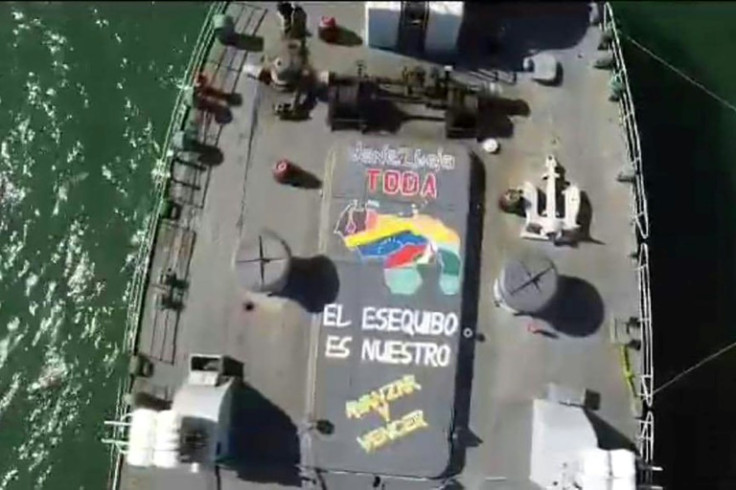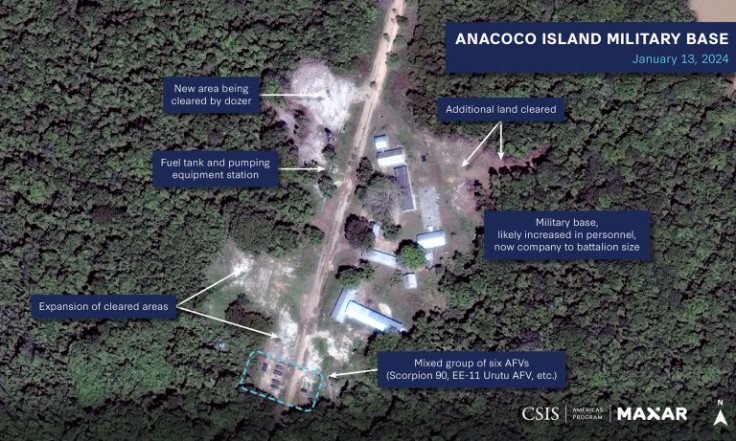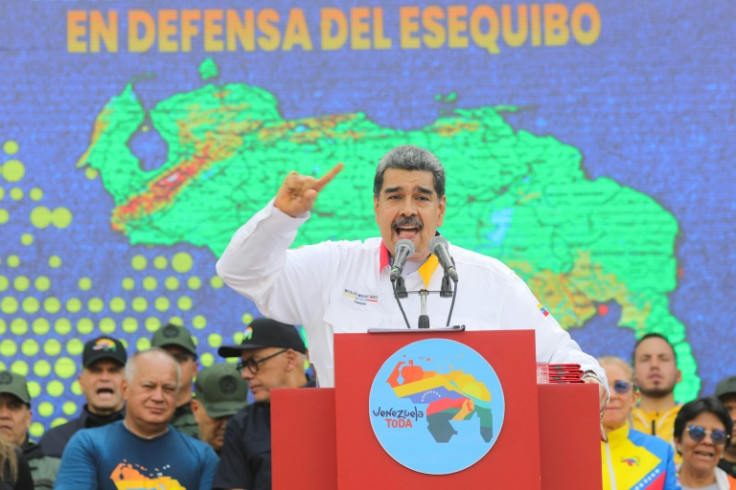
The U.S. government downplayed Venezuela's increased military presence along its border with Guyana, saying that all movements seen have been of a "very small nature and size and scale and scope."
The statement belongs to White House Spokesperson John Kirby, who added that the government has been "monitoring this closely," but the assessment is that there is no current indication that "there's about to be hostilities or that the Venezuelan military would be capable of conducting any significant military activities there."
The question, asked during a briefing on Monday, comes after a report showing that the Maduro government moved light tanks, missile-equipped patrol boats and armored carriers to the border with Guyana amid the escalating dispute over the Essequibo, an oil-rich region controlled by Guyana that Venezuela claims as its own.
The Maduro government has gone back to using escalatory rhetoric in the past week, vowing a "forceful response" if oil drilling begins in the region's contested waters.
A report by the Center for Strategic and International Studies said that the Venezuelan military's intentional information operation targeted external audiences, including the Guyanese government, raising concerns about the sincerity of Venezuela's commitment to diplomatic resolution.

"We continue to urge a peaceful resolution to this. And, obviously, we're going to continue to watch it closely," added Kirby. Venezuela's actions came despite an agreement with Guyana to denounce the use of force in the dispute.
Recent military deployments, including missile boats and surface-to-air systems, near the Essequibo border have further escalated tensions. This has prompted the Lloyd's Market Association to designate Guyana's offshore sector as an area of elevated risk, impacting the cost of shipping crude oil and posing potential threats to the nation's booming oil industry. The Venezuelan military's actions indicate an attempt to compel Guyana to negotiate bilaterally and potentially gain favorable terms, CSIS added.

International responses suggest growing concerns about Venezuela's actions. Brazil reinforced its forces in Boa Vista, and the United States pledged to deepen defense cooperation with Guyana. These moves indicate a recognition of potential threats and a commitment to safeguarding Guyana's borders. Nonetheless, Kirby also remarked that "anything that we're doing down in Guyana or in that area is done fure- — purely for defensive purposes."
As a March meeting between Presidents Maduro and Guyana's Irfaan Ali approaches, CSIS recommends policymakers remain vigilant. Anacoco Island, Punta Barima, and other key locations should be closely monitored to assess ongoing developments, and the international community, including the United States and Brazil, are set to play a crucial role in raising awareness about Venezuela's actions and ensuring that coercive tactics find no acceptance, it concludes.
© 2025 Latin Times. All rights reserved. Do not reproduce without permission.





